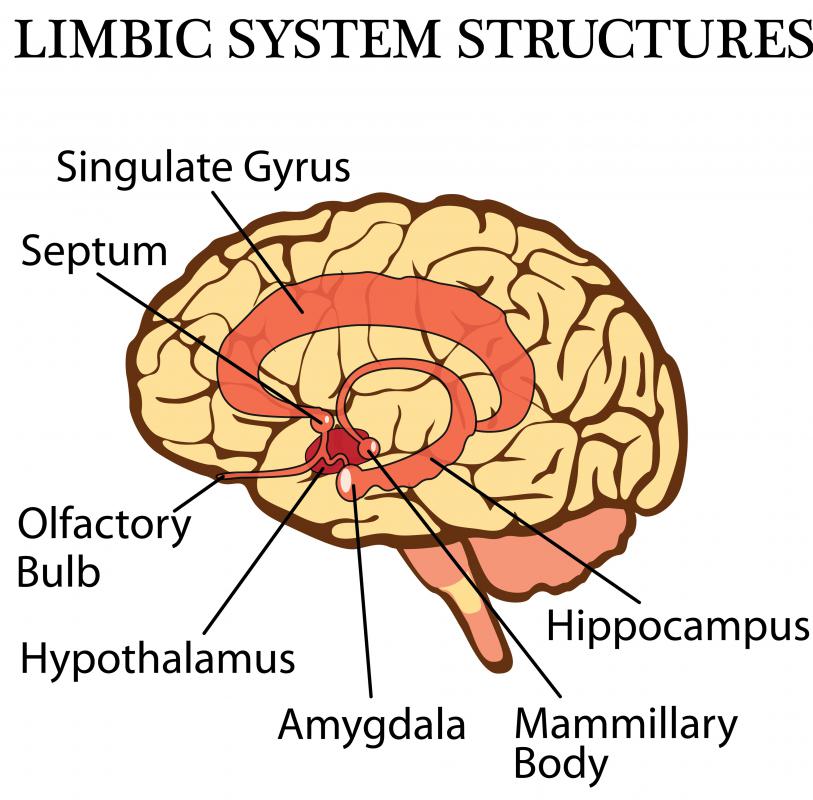At WiseGEEK, we're committed to delivering accurate, trustworthy information. Our expert-authored content is rigorously fact-checked and sourced from credible authorities. Discover how we uphold the highest standards in providing you with reliable knowledge.
What Happens to the Body During Ovulation?
During ovulation, an egg is released from a woman's ovary. There are many things that happen to the body during this process. For example, hormones stimulate the maturation of egg follicles in the ovaries, and multiple egg follicles begin to mature at one time. A single egg, under most circumstances, matures fully, and a hormone called luteinizing hormone stimulates the egg to burst from its follicle and move into a woman’s fallopian tube. A woman may notice a range of signs during this process, including slight cramping that coincides with the bursting out of the egg, a change in the appearance and consistency of her cervical mucus, and slight increase in her basal body temperature, which is the temperature of a woman’s body when it is at rest.
Most people are aware that ovulation occurs when a woman’s ovary releases an egg into her fallopian tube, but many are unaware of the complex processes that occur during ovulation. For starters, hormonal changes in the body serve to stimulate ovulation. The hypothalamus, which is a gland in the brain, starts the ovulation process by producing a hormone referred to as gonadotropin-releasing hormone. This hormone, in turn, stimulates the pituitary gland, which is a tiny gland below the base of the brain, to begin releasing follicle-stimulating hormone. It is this hormone that is responsible for stimulating follicular growth in a woman's ovaries.

As the follicles in a woman’s ovaries develop, they produce the hormone estrogen. Eventually, these levels peak, and a woman usually ovulates the next day, though the length of time between this peak and ovulation is not exact. The peaking of estrogen typically causes a surge in luteinizing hormone, which is released from the pituitary gland. This surge is often an indication that an egg follicle will mature and a woman will ovulate within about 36 hours. The mature egg finally leaves the follicle and enters the fallopian tube, and the empty follicle is left behind.

Most women are unaware that they are ovulating during this complex process. There are some signs that may be present during ovulation and afterward, however. Some women have pelvic cramping on the side of the pelvis on which the egg is released during ovulation. Women may also notice that their cervical mucus becomes clear and stretchy at this time. Additionally, a woman’s base body temperature usually rises very slightly about a day or two after ovulation has occurred.
AS FEATURED ON:
AS FEATURED ON:















Discussion Comments
@browncoat - I find it's pretty useful to keep a chart, or use an online service to keep track of your periods. It's not only good for getting pregnant, or staying safe, but also can be good if you have any medical trouble with your reproductive system. If, say, you start having bleeding during ovulation, or pain or whatever, you'll be able to present more information about it to your doctor.
Plus it's just nice to have a warning for when your period is due to start, particularly if it's not on a completely regular cycle.
@umbra21 - Calendar based contraception can be effective, but you have to be really strict about using it correctly and it really limits spontaneity as well. Even then, it's not as effective as just using a condom (plus the condom protects from STDs as well).
Anyway, it's just as likely for women to be wondering about when they are ovulating so that they can figure out the best time to have sex because they want to be pregnant. One method of doing that is to take your temperature, waiting for the rise that means that you've been ovulating. I think that's the method that gets recommended by doctors.
Most people will want to know this kind of information to practice natural birth control. From what I've been told, it's the only kind of birth control that people of certain religions, like Catholicism, can use. It's also good for people who live in countries where they might not always be able to access other kinds of birth control.
If you know approximately when you will be ovulating each month you can plan out which days are safe to have sex.
Post your comments